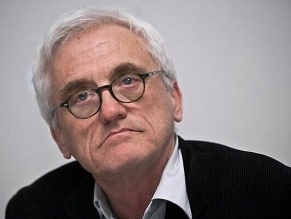|
World Jewish News

Polish author Jan Tomasz Gross, author of the 2001 book, 'Neighbors,' about the murder of Jedwabne's Jewish community by Polish neighbors. (East News)
|
Polish prosecutors drop defamation case against Holocaust scholar
26.11.2019, Holocaust Prosecutors in southern Poland have dropped a case investigating claims made by Holocaust scholar Jan Tomasz Gross that Poles killed more Jews than Germans during World War II.
Gross’s claim in a 2015 article upset many in Poland, and a probe was subsequently launched to determine whether the historian had insulted the Polish nation.
A respected scholar, Gross is a controversial figure in Poland. His 2001 book, “Neighbors,” about the pogrom in Jedwabne on July 10, 1941, against Jewish residents of the village by Poles, initiated the Polish debate on the responsibility of Poles for the crimes committed during World War II and the murder of Jews.
Prosecutors in Katowice said Tuesday that the evidence gathered offered no clear guidance. Poland’s case against Gross, which also involved a presidential threat to strip him of a state honor, raised questions about the country’s conservative leadership’s commitment to the freedom of scholarship. Law and Justice, a conservative and nationalist party that controls both the presidency and parliament, is also centralizing power in a way that has raised concerns about its commitment to democracy more broadly.
The US-based Gross was questioned after multiple complaints were filed with prosecutors by Polish citizens over the 2015 article in which he asserted that Poles killed more Jews during the German occupation than they killed Germans — a claim that challenges a widespread conviction in Poland that the Polish response to the German terror was almost exclusively honorable.
Gross made the comparison in an article published by Project Syndicate in September 2015 critical of how Poland and other Eastern European countries have reacted to the migrant crisis. He decried the region’s opposition to accepting refugees as “heartless” and argued that the attitude is rooted in the region’s “murderous past.”
In the most controversial section, Gross wrote: “Consider the Poles, who, deservedly proud of their society’s anti-Nazi resistance, actually killed more Jews than Germans during the war.”
He was charged under what the Warsaw prosecutor’s office described as a provision of the criminal code that “provides that any person who publicly insults the Polish nation is punishable by up to three years in prison.”
There appeared to be significant political will behind Gross’ prosecution, given that a Polish prosecutor who twice wanted to end the investigation found himself demoted.
Since prosecutors launched their probe into Gross, Warsaw has taken further steps to criminalize what its leaders see as foreign efforts to blame it for the Holocaust.
In February 2018, the Polish parliament passed a law that criminalized blaming Poland for Nazi crimes, sparking a diplomatic crisis with Israel. The bill was later amended so that those found in violation would no longer be liable to serve a jail term if found guilty. The passage of the law and subsequent diplomatic furor were accompanied by an uptick in public expressions of anti-Semitism in Poland.
Gross has said that he believes the law’s real aim is to “gag” the way history is written far more broadly.
“I am going to write what I am writing. But young people will think twice before they specialize in that field, and teachers and others will feel very constrained about speaking about and addressing issues of complicity and how the Holocaust played out in Poland,” he said in an interview with the Associated Press last year.
Those who have condemned resurgent anti-Semitism in Poland have found themselves under attack from nationalists and there have been several reports of Polish leaders like President Andrzej Duda and Prime Minister Mateusz Morawiecki making derogatory statements about Jews.
Morawiecki sparked widespread anger last February when he said that there were Jewish perpetrators of the Holocaust. In comments intended to minimize the furor over his country’s Holocaust law, he stated that “it’s not going to be seen as criminal to say that there were Polish perpetrators, as there were Jewish perpetrators, as there were Ukrainian; not only German perpetrators.”
The Times of Israel
|
|
